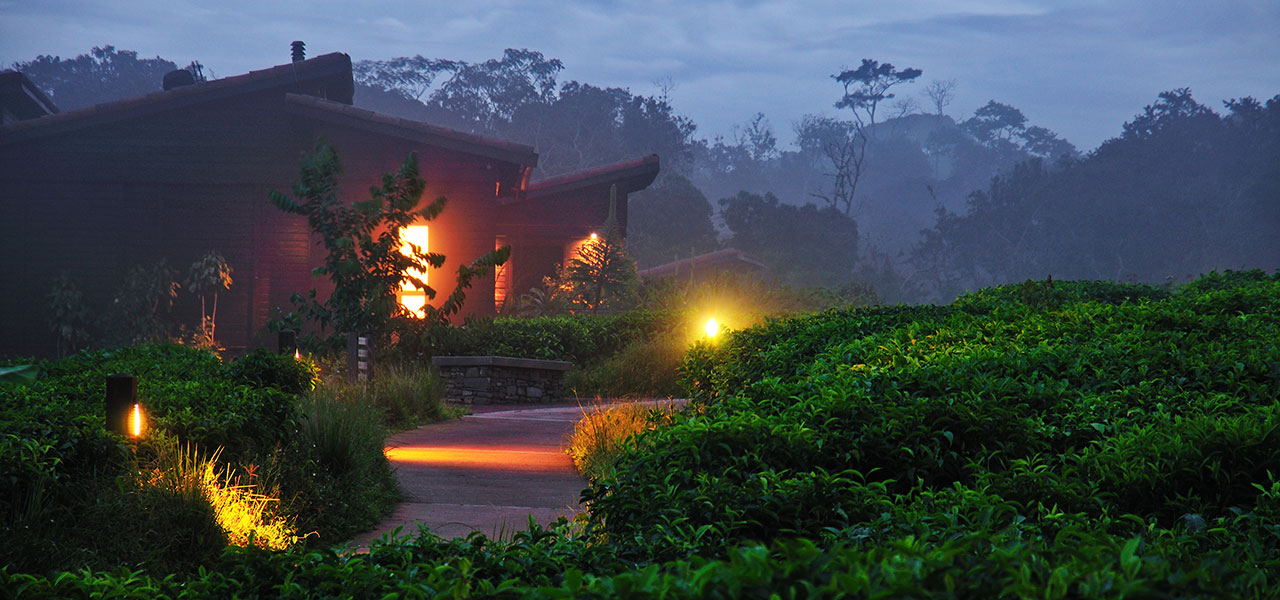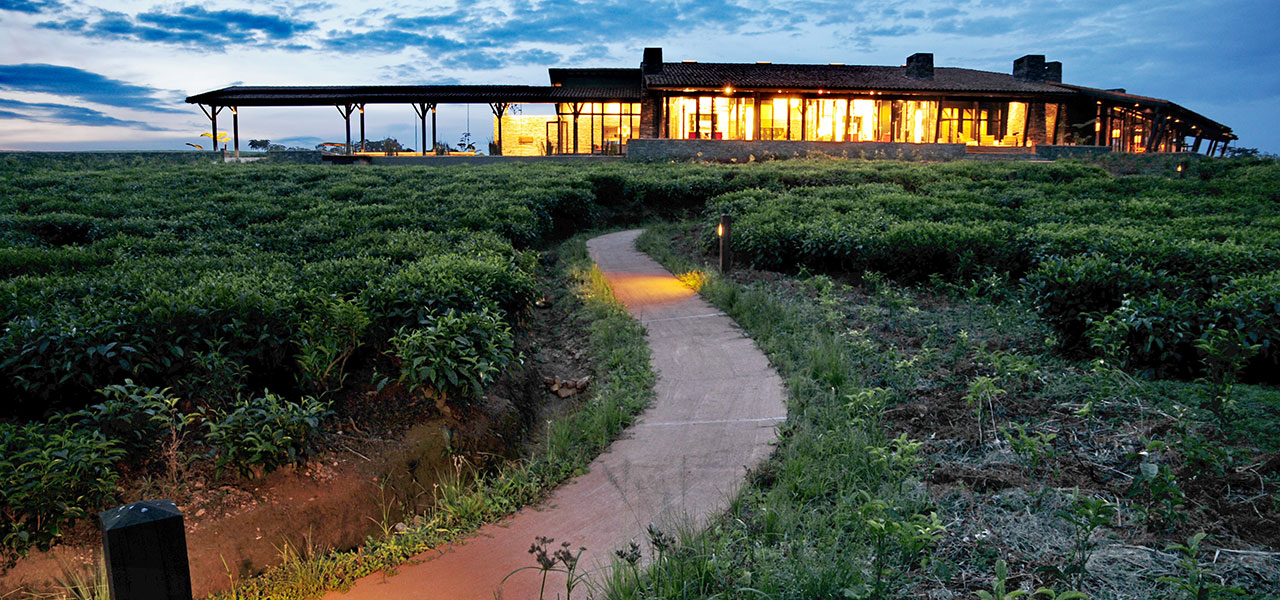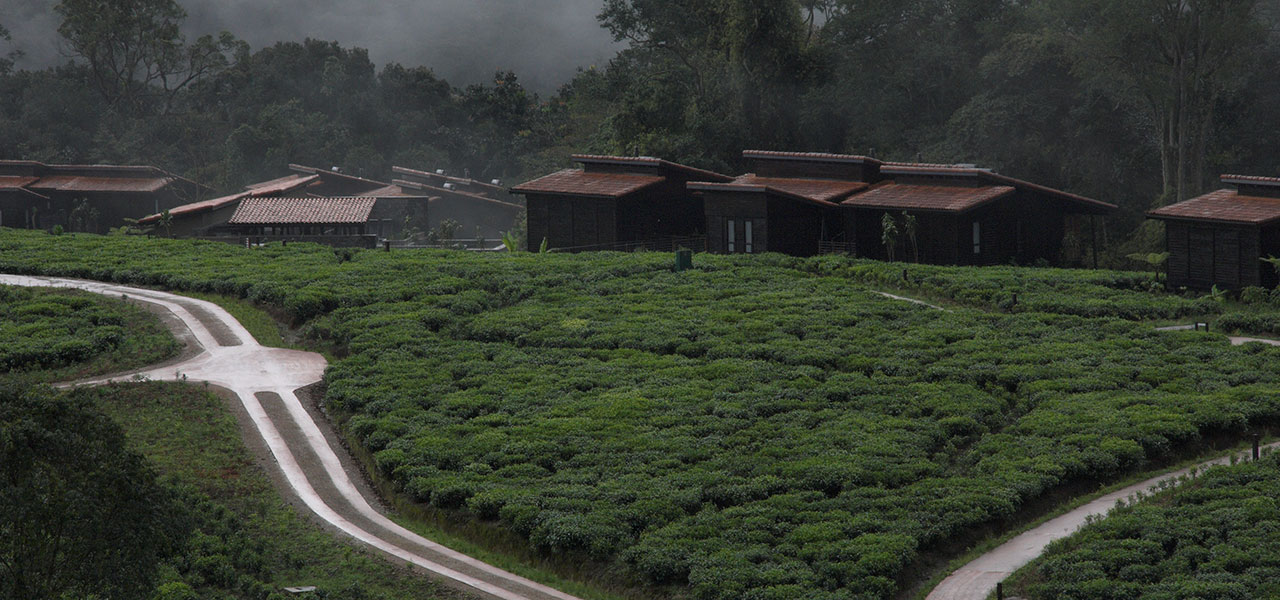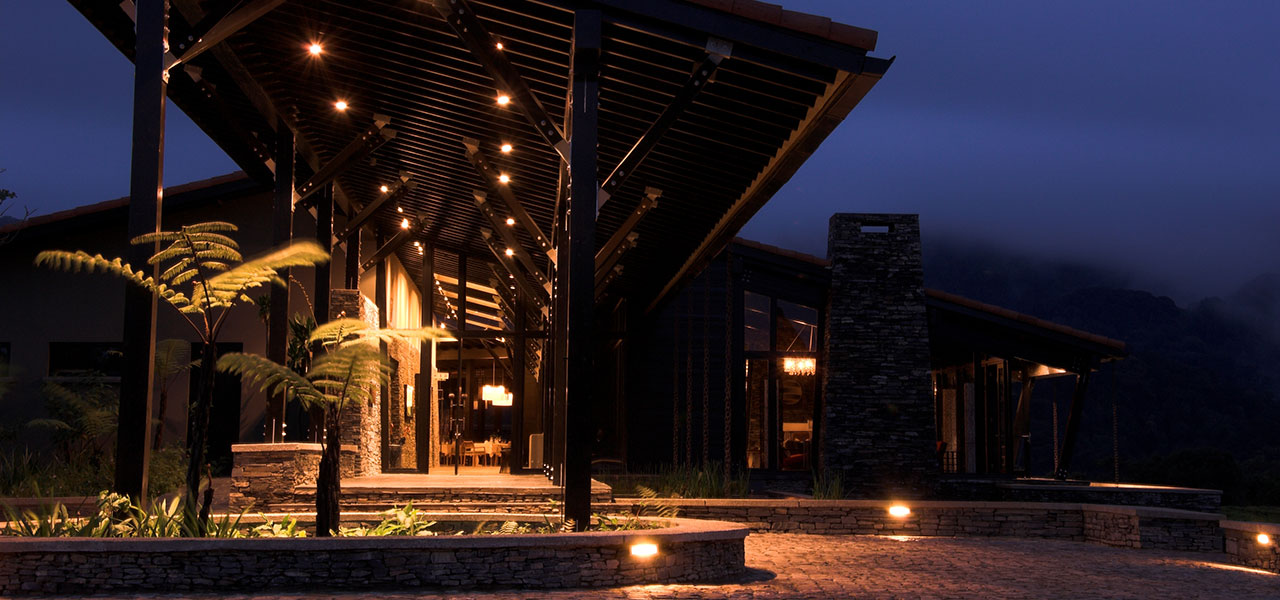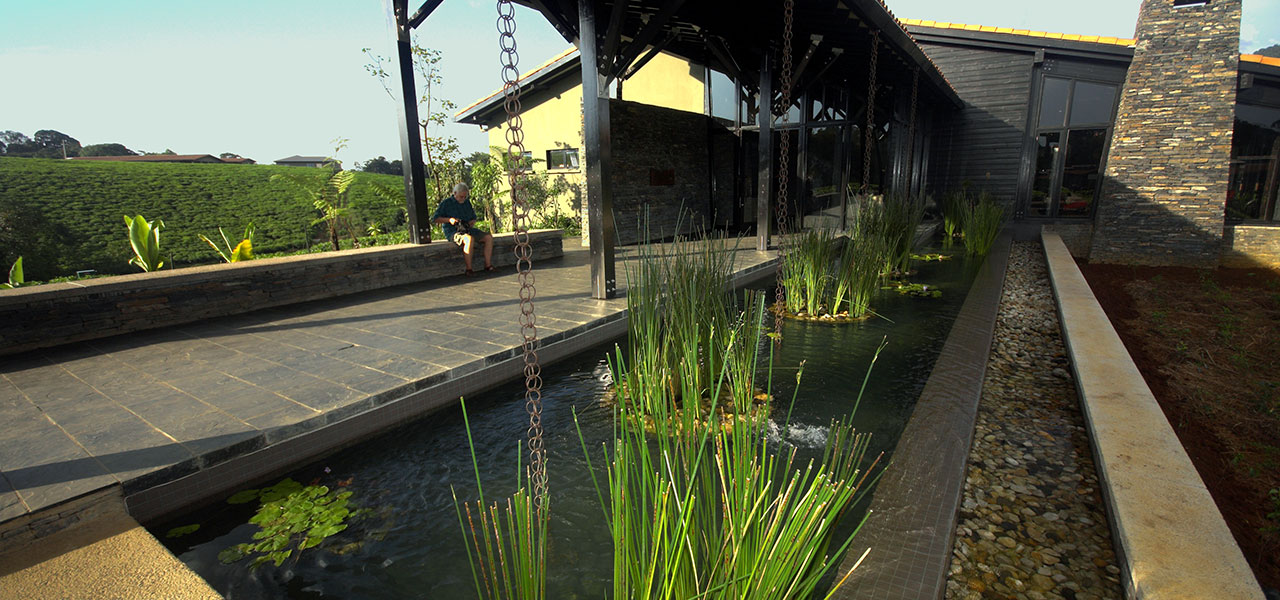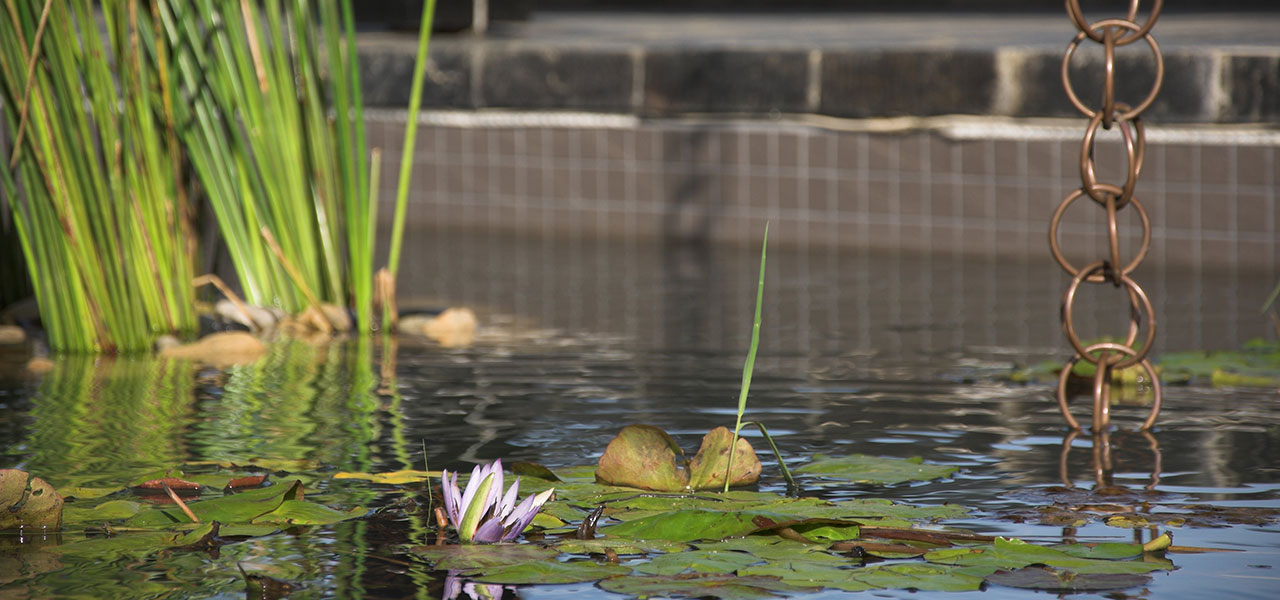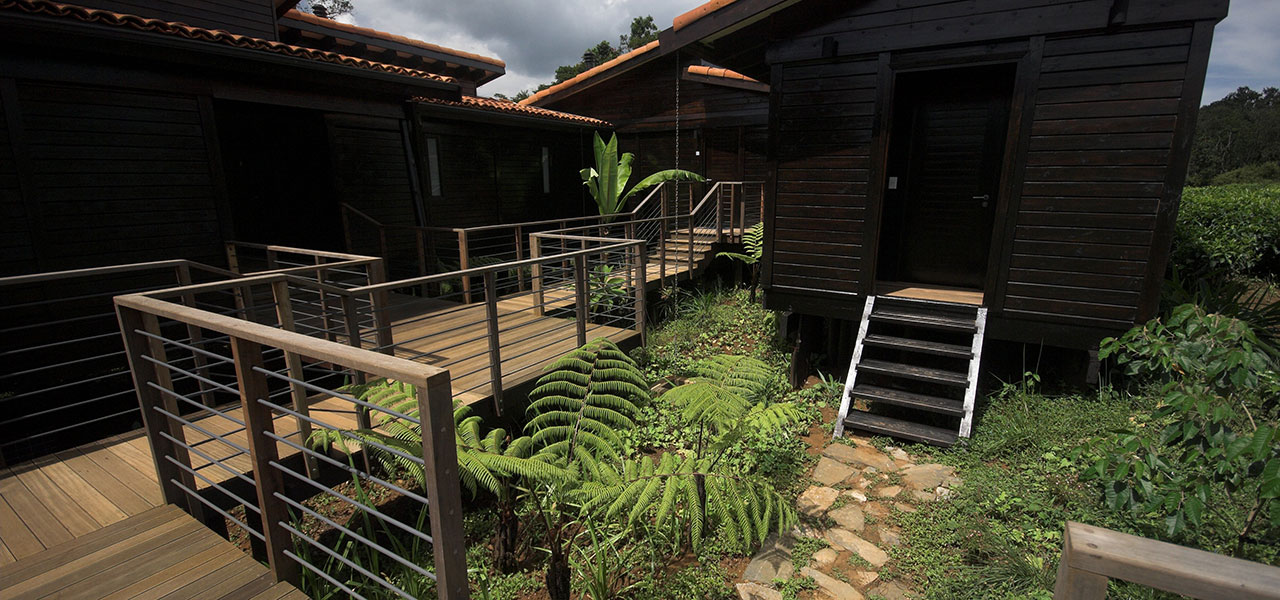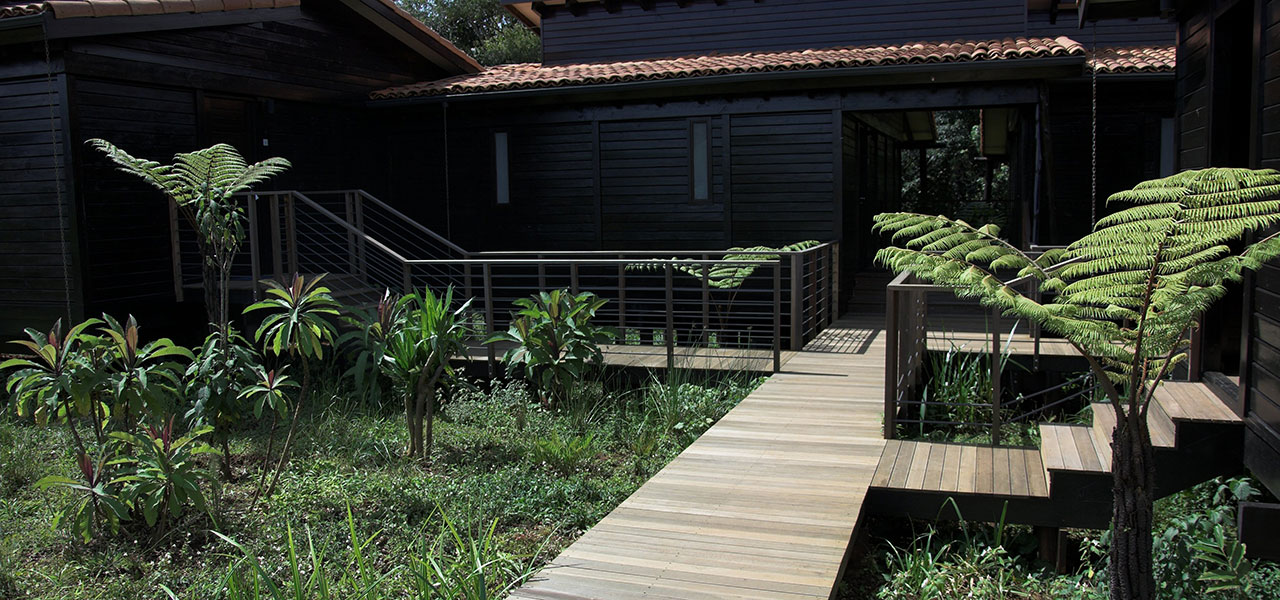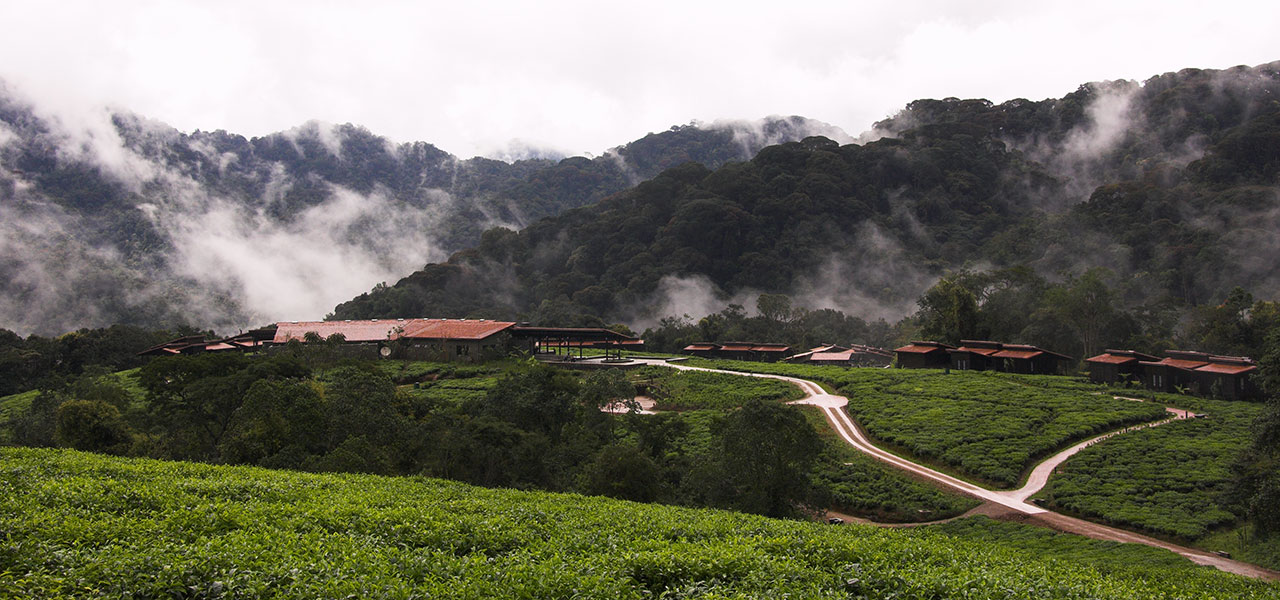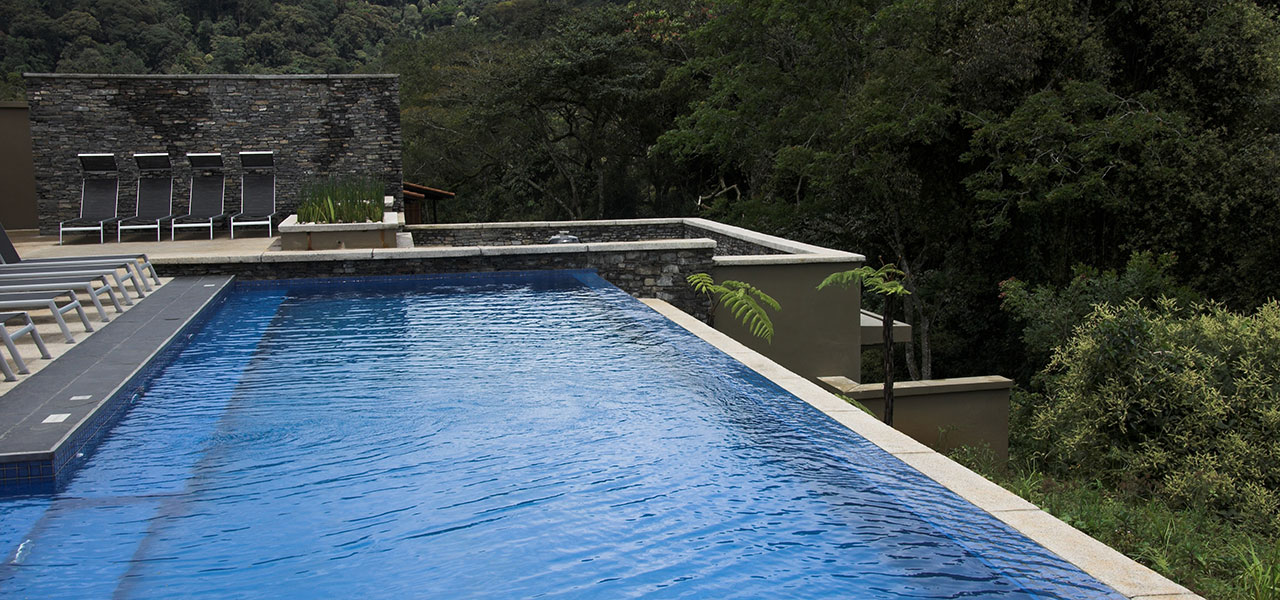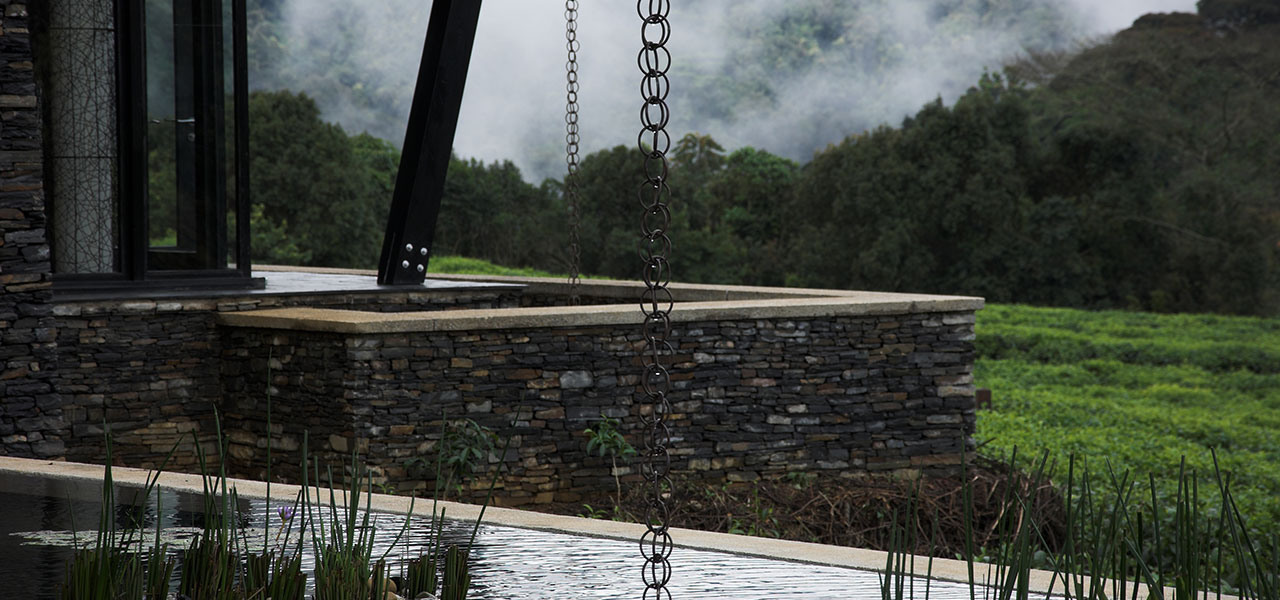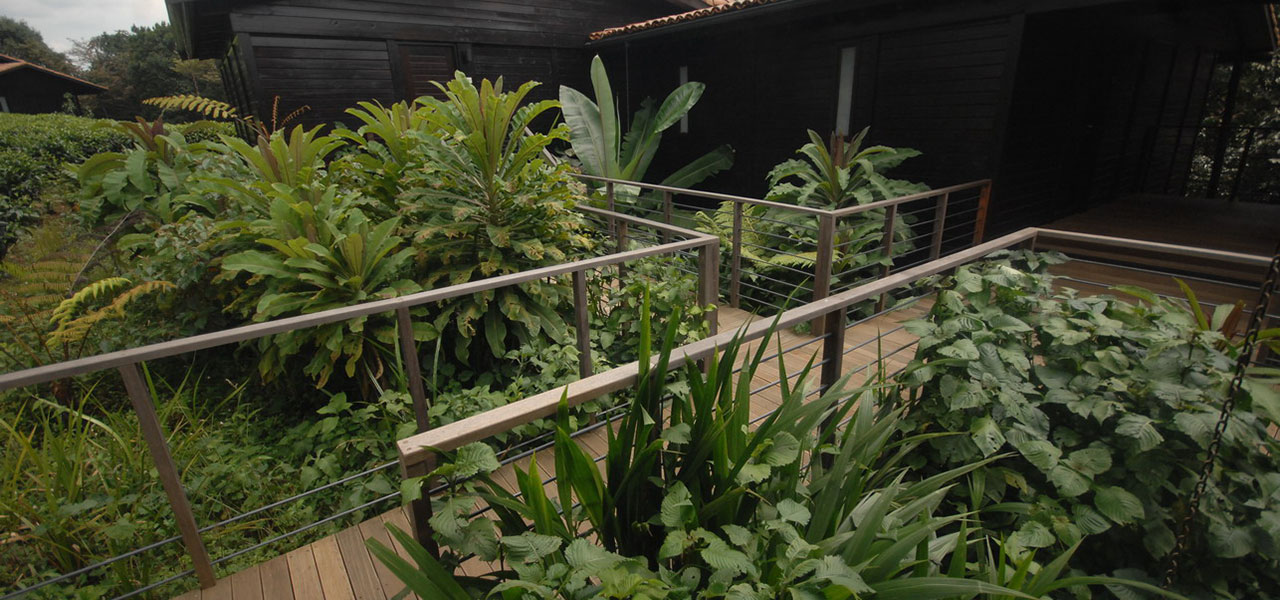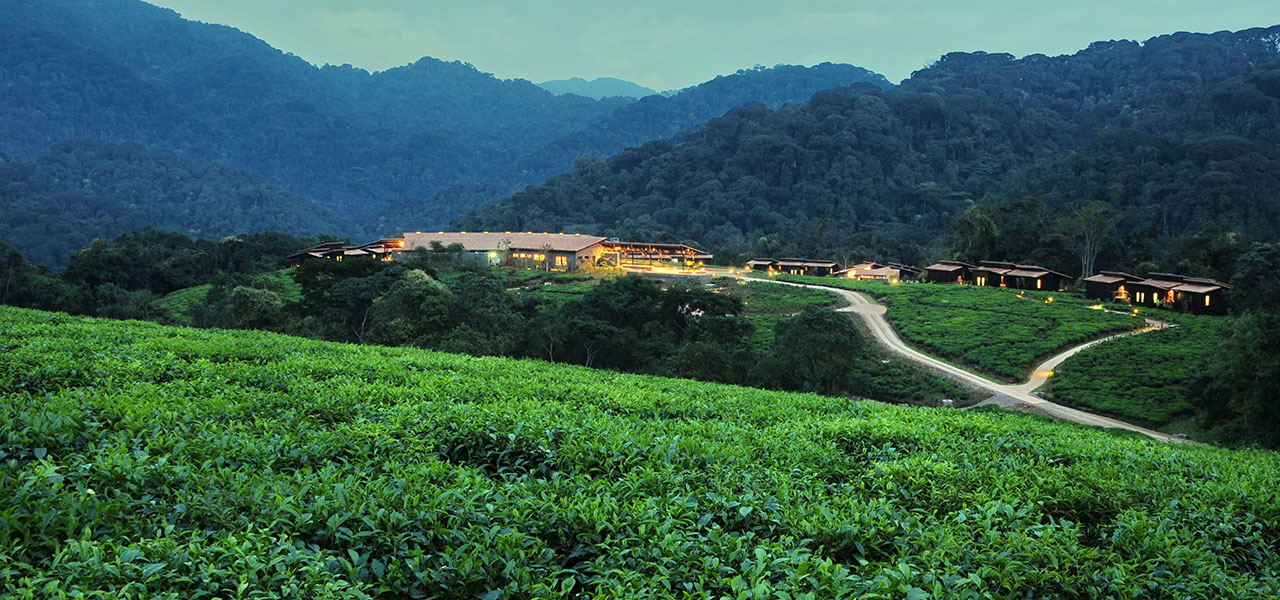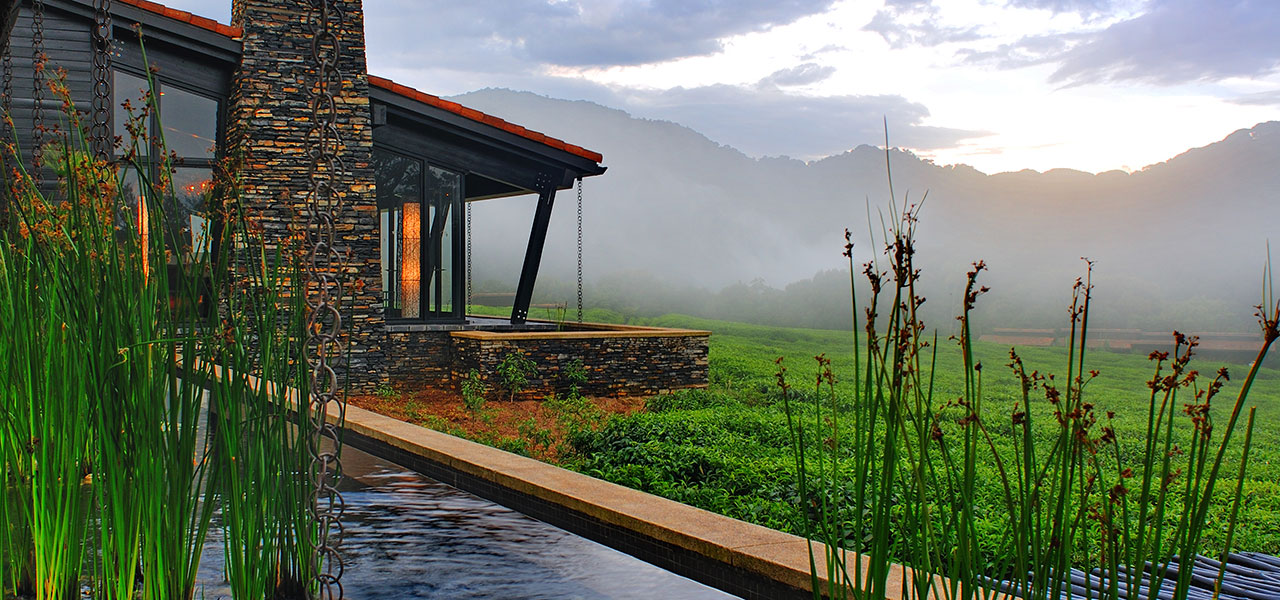The luxury Nyungwe Forest Lodge, completed in March 2010, is situated on high ground in a tea plantation at the edge of the forest with spectacular views over the forest and to the distant Lake Kivu in Zaire.
As an international tourist destination in a pristine setting the lodge is carefully integrated into the natural topography, the public areas on the upper slope carved into the tea plantation in contrast to the rooms situated on lower ground at the forest edge. Circulation is via electric carts on narrow concrete pathways tinted to match the deep red earth and neatly cut into the tea plantation
The public areas grows out of the site, the materials are natural and of the earth, timber and stone. The rooms are constructed from prefabricated timber panels, and are elevated on stilts over the landscape allowing the forest to flow beneath. Vehicular access to the lodge is limited to twin concrete strips, allowing maximum re-vegetation. Parking is located in pockets and is screened from view. The rooms are accessed via elevated boardwalks over the tea plantations.
Where disturbed the site has been ecologically re-habilitated with indigenous endemic species of the Nyungwe Forest. The rehabilitation provided a link to the forest allows the wildlife habitat to penetrate tea plantations. With permission from the Rwandan environmental authorities parent stock for propagation was obtained from the secondary and pioneer forest habitat on the forest edge and from the adjacent tea plantation.
An onsite propagation nursery was established with a third covered with a shade structure located on the future linear access pathways. This provided space for around 80 000 newly propagated plants an opportunity to harden off as well as provide the correct growing conditions for shade tolerant species.
Plants were also harvested from adjoining farming and village areas and forest edges.
Local labour was trained during this process and became part of the Lodge management staff post completion.
The completed project combines 5-star luxury in a remote corner of Africa with some of the rarest plants and animals in a unique forest setting.

